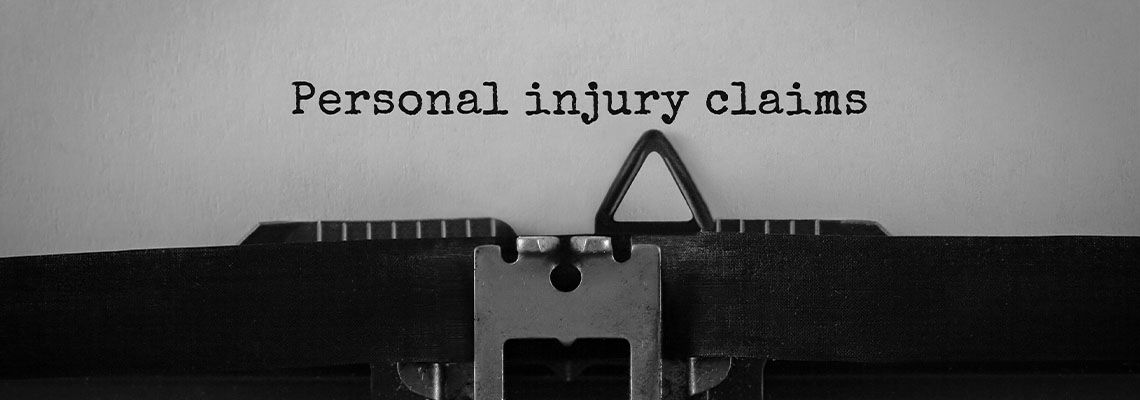
How Do Pre-Existing Medical Conditions Affect a Personal Injury Claim?
Accidents happen all the time, but when someone else’s actions, inactions, or negligence lead to your accident and resulting injuries, then there can be a claim to recover compensation for your medical expenses, lost wages, and even pain and suffering.
Suppose you leave your home to go shopping, but on the way, another vehicle rams into you and your vehicle and you end up on the side of the road with back and neck injuries. If your injuries are serious enough, you may certainly be able to pursue a claim against that driver’s insurance, or you can pursue a personal injury lawsuit.
Another scenario: Say you leave your home and you get to the mall to do your shopping, but inside one of the stores, you slip and fall on a wet surface that wasn’t indicated as wet. Again, you suffer back and neck injuries. You may be able to file a claim against the storeowner’s liability policy, or again, pursue a civil lawsuit.
Suppose in both instances, however, that the other party’s insurance company or attorney discovers that you had previously suffered a back injury that could be the cause, partial or whole, of your current condition. They may be able to argue that your pre-existing condition contributed to your injuries and current state and thus challenge your claim. Will this mean you get less or even nothing?
If you’ve been injured because of what someone else did—or neglected to do—and you’re worried about how a pre-existing condition might affect your case, contact us at Ellis & Thomas, PLLC. We are personal injury attorneys who will fight for the compensation you deserve. Located in Houston but serving the entire state of Texas, we are experienced and knowledgeable in every aspect of the laws affecting your claim.
What Are Pre-Existing Conditions?
A pre-existing condition can stem from a prior injury you had or from medical conditions you’re suffering from. Examples of pre-existing injuries include but are not limited to:
Broken bones from prior incidents
Chronic back or neck issues
A herniated disc
A history of concussion or even traumatic brain injury (TBI)
Strains and sprains
Examples of pre-existing medical conditions may include, among others:
Arthritis
Degenerative disc disease
Diabetes
Fibromyalgia
Cardiovascular disease
How Do Pre-Existing Conditions Affect Your Claim?
In the two earlier examples—the roadway collision and the slip and fall in a retail establishment— the injured party suffered neck and back injuries. The insurance claims adjuster or the defendant’s attorney (if your claim goes to court) can argue that you already had a herniated disc, which contributed to your injuries. They can also point to degenerative disc disease, or even arthritis as factors.
Your pre-existing condition might thus factor into any settlement or jury award you receive. Though a pre-existing condition typically won’t prevent the recovery of compensation for your injuries, you might end up with less than if there were no pre-existing condition. Where the compensation may be most affected is in the area of non-economic damages.
In a personal injury case, there are two types of available damages: economic and non-economic. Economic refers to medical and treatment/therapy expenses, lost wages, loss of earning capacity, property damage, and funeral costs if death results. Non-economic damages include pain and suffering, mental anguish, decreased quality of life, loss of consortium (relationships), and physical impairment or disfigurement.
Pain and suffering could be a sticking point because the other party can argue that what you’re just feeling you have always experienced because of your pre-existing condition. You can counter by pointing out that, prior to the recent accident, you got by daily with just over-the-counter pain pills, but now you are on prescription painkillers and seeing a physical therapist weekly.
The Eggshell Plaintiff Rule
There is something called “the eggshell skull rule,” or “the eggshell plaintiff,” that provides that the party responsible for the injuries—the driver or store owner in our example—is liable for the direct results of their negligence despite the frailty of the victim. If the victim in the example needed surgery to repair a damaged disc from the accident, the responsible party would have to pay for that despite any pre-existing back problem.
The defendant, however, is only responsible to return the injured party to the condition they were in prior to the accident, not to make the person better. This is because of another principle called “the crumbling skull rule.” Under this rule, the defendant does not have to pay for any debilitating effects resulting from a pre-existing condition. Also, if the victim decides to get experimental overall disc restoration surgery, the defendant is most likely not responsible for that, either.
Strive for a Better Future
If you have been injured because of someone else’s negligence or carelessness—or even from an intentional act—you have a right to seek compensation for the injuries and damages suffered as a result, despite any pre-existing conditions.
Reach out to us at Ellis & Thomas PLLC in the Greater Houston area. As skilled and dedicated lawyers, we are experienced in all applicable federal, state, and local laws regarding personal injury claims. Let us negotiate with insurers on your behalf and advocate for your rights every step of the way. We are proud to serve clients throughout Texas, including Harris County, Fort Bend County, Montgomery County, and Brazoria County.
